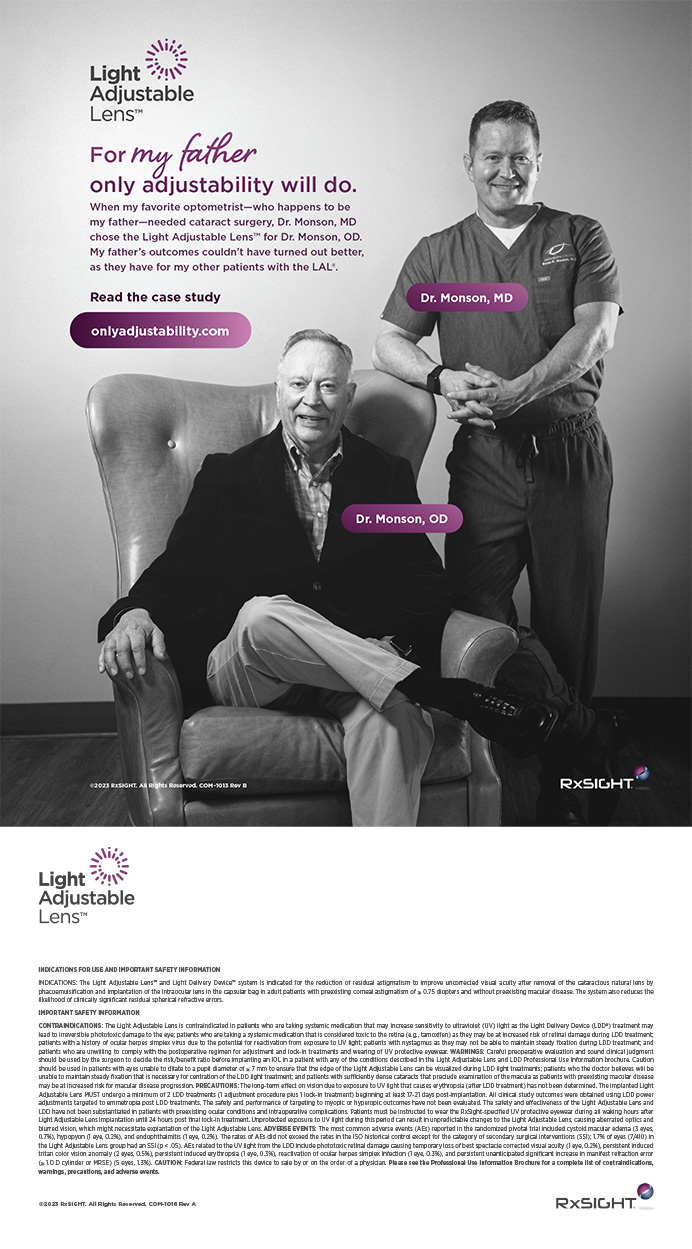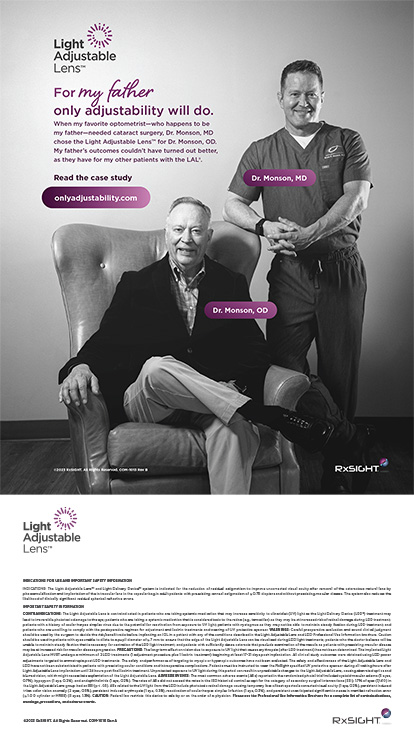You have had an extremely successful career as an ophthalmic surgeon.What is your secret?
Being diligent, always being honest, and projecting that to my patients certainly are prerequisites to success in any field and definitely in ophthalmology.
What is the current focus of your research?
My current research focuses on how to prevent complications in cataract surgery by using pattern recognition. From the first day of our lives when our mothers held us in their arms, we looked up, we saw their faces, and we developed a pattern of seeing their faces every day. When we operate, there are certain practices that we repeat. If we analyze these repeated practices that occur from the beginning to the end of surgery, we can improve the odds of safety. In other words, safety improves if we slow down a bit, try to look at these patterns, and say, “This is something that I need to be watchful of to make this procedure better.”
What would you change in the ophthalmic industry if you could?
We are all interested in education and the rapid dissemination of knowledge, but it is extremely important to disseminate that knowledge in an unbiased way. A lot of research has been sponsored by industry. While it is very necessary to have industry-sponsored research, we must eliminate the bias and be as objective as possible. However, this is not an easy thing to do, and it is a problem in all of medicine, not just in ophthalmology. This is why certain regulatory agencies have come to the forefront and are partially intruding in our professional lives, because of bias that is present in our results and the reporting of our scientific research. We can change this by objectively supporting scientific data and making sure that we are able to reproduce what we find.
What would you like to accomplish over the next 5 years?
I would like to continue practicing ophthalmology as long as I am able to in the manner in which I currently do it. I would also like to continue to improve on my surgical and clinical results to help my patients maintain their vision.
What is your advice to the next generation of cataract and refractive surgeons?
Keep an open mind and be extremely objective when learning anything new. When I started in this field, all innovation had to come out of the Ivory Towers in academia. That is certainly not true anymore, and the next generation of cataract and refractive surgeons should take advantage of that. New surgeons should also have a strong background in information technology in order to collect and analyze data more efficiently.


